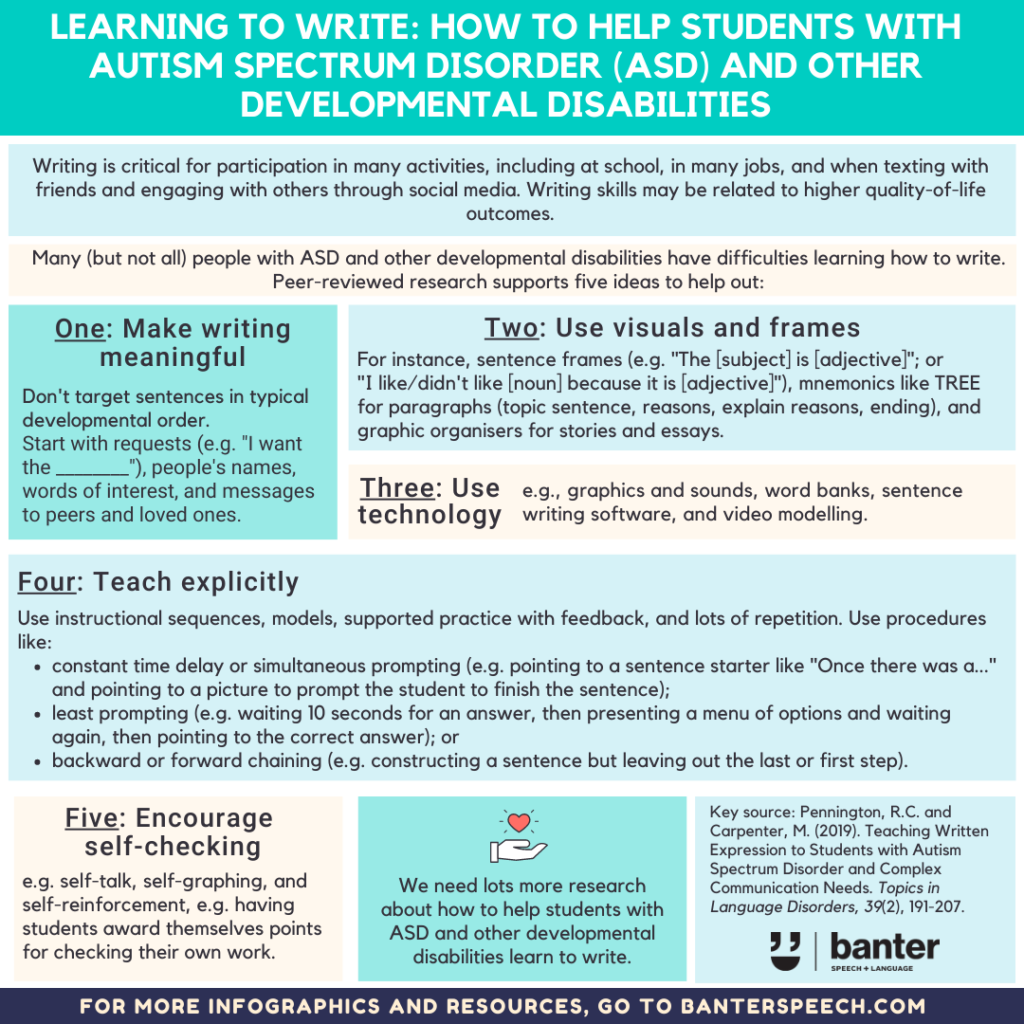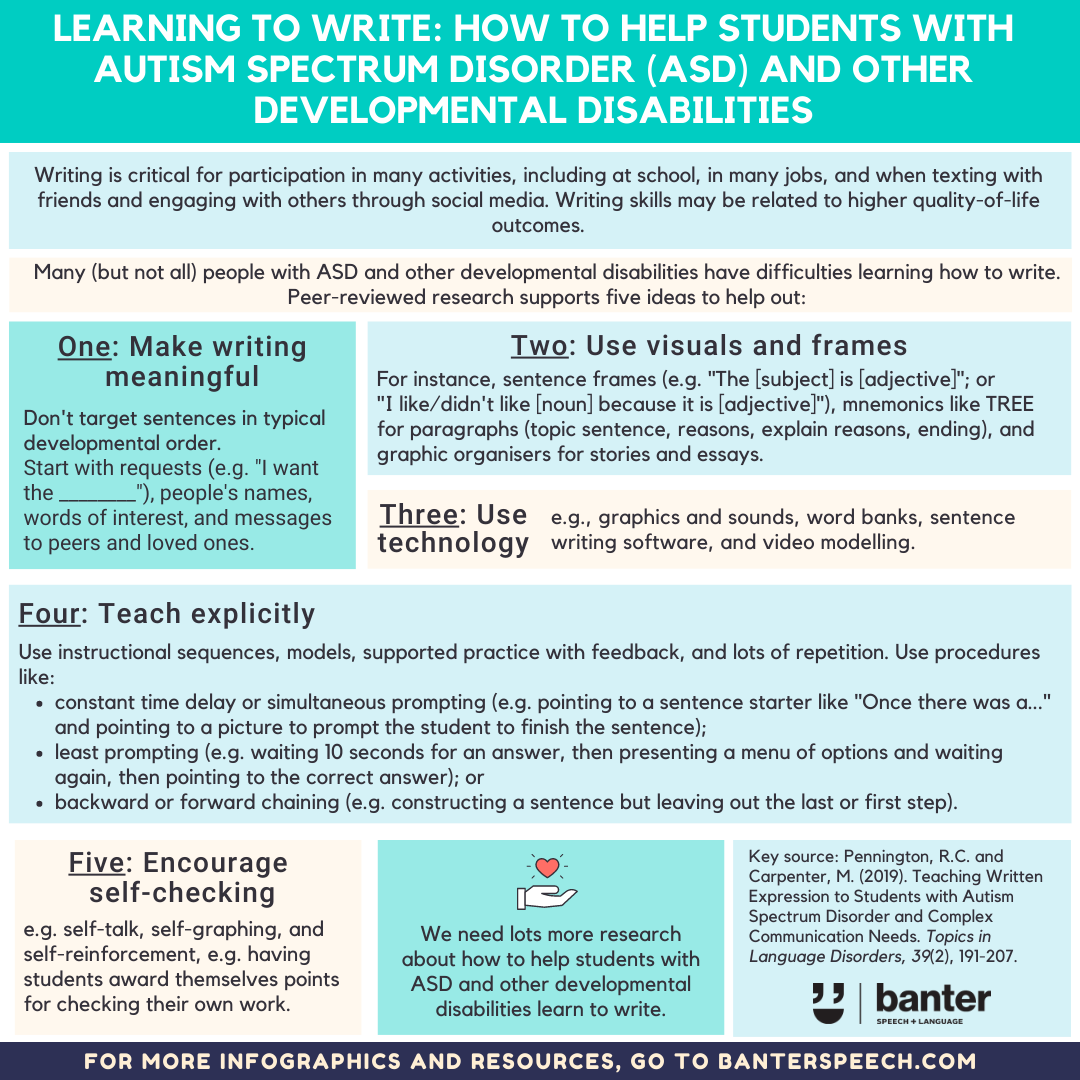Writing is critical for participation in many activities, including at school, in many jobs, and when texting with friends and engaging with others through social media. Writing skills may be related to higher quality-of-life outcomes.
Many (but not all) people with Autism Spectrum Disorder (ASD) and other developmental disabilities have difficulties learning how to write. Peer-reviewed research supports five ideas to help out:
1: Make writing meaningful: Don’t target sentences in typical developmental order. Start with requests (e.g. “I want the _____”), people’s names, words of interest, and messages to peers and loved ones.
2: Use visuals and frames, e.g. sentence frames (e.g. “The [subject] is [adjective]”; or “I like/didn’t like [noun] because it is [adjective]”), mnemonics like TREE for paragraphs (topic sentence, reasons, explain reasons, ending), and graphic organisers for stories and essays.
3: Use technology, e.g., graphics and sounds, word banks, sentence writing software, and video modelling.
4: Teach explicitly: Use instructional sequences, models, supported practice with feedback, and lots of repetition. Use procedures like:
- constant time delay or simultaneous prompting (e.g. pointing to a sentence starter like “Once there was a…” and pointing to a picture to prompt the student to finish the sentence);
- least prompting (e.g. waiting 10 seconds for an answer, then presenting a menu of options and waiting again, then pointing to the correct answer); or
- backward or forward chaining (e.g. constructing a sentence but leaving out the last or first step).
5: Encourage self-checking, e.g. self-talk, self-graphing, and self-reinforcement, e.g. having students award themselves points for checking their own work.
We need lots more research about how to help students with ASD and other developmental disabilities learn to write.

For an accessible audio version of the infographic, check out our video below:
Key source: Pennington, R.C. and Carpenter, M. (2019). Teaching Written Expression to Students with Autism Spectrum Disorder and Complex Communication Needs. Topics in Language Disorders, 39(2), 191-207.


